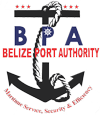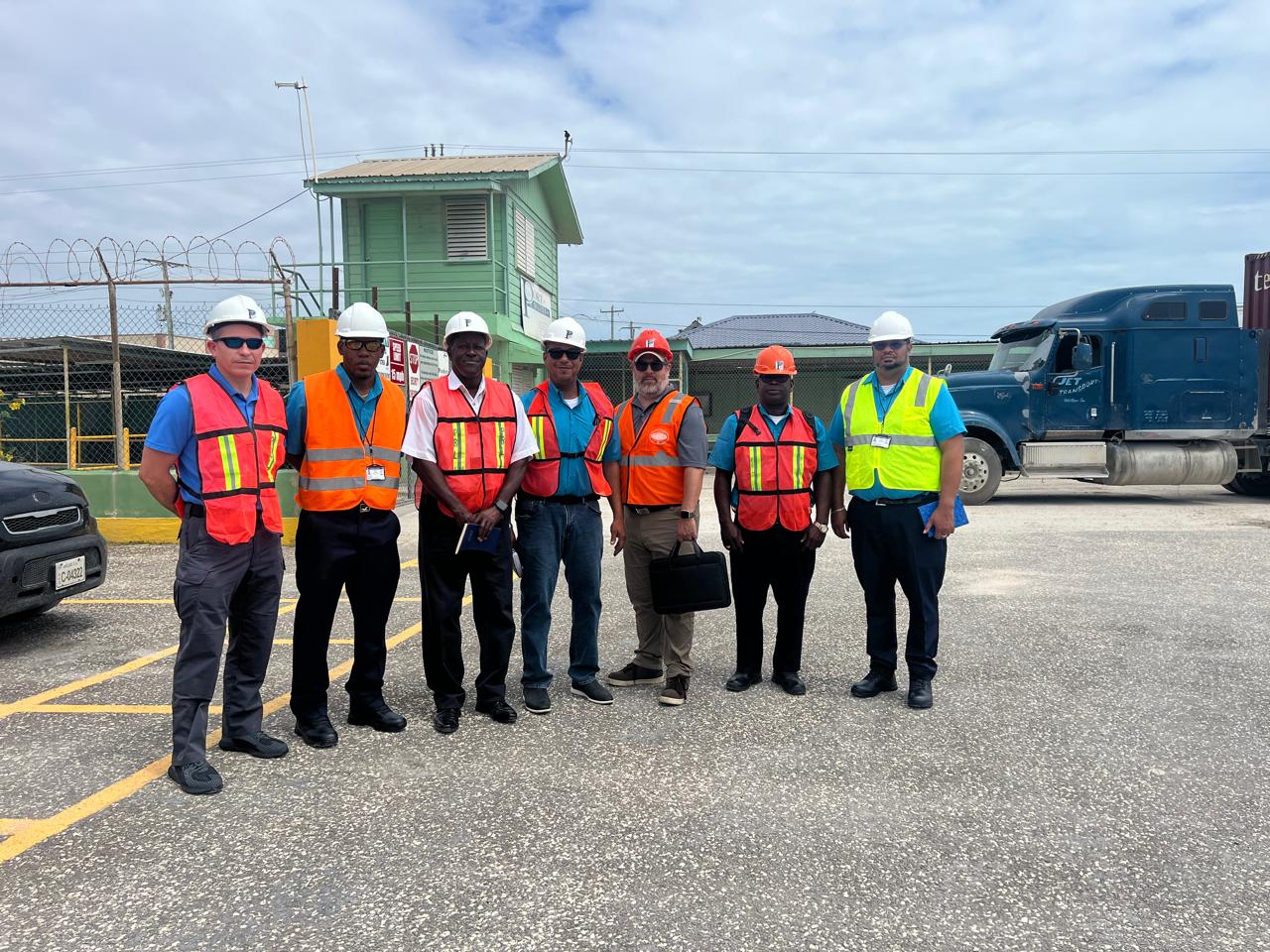From May 12–17, 2025, representatives from the United States Coast Guard (USCG), in partnership with the Belize Port Authority (BPA), conducted a scheduled follow-up assessment of four key port facilities in Belize. This collaborative effort was part of the International Port Security (IPS) Program, which aims to strengthen global maritime security through adherence to the International Ship and Port Facility Security (ISPS) Code.
The assessment team included Lt. Giovannie R. Rivera and Joseph Castro from the United States Coast Guard, with Mr. Christopher Farlow from the U.S. Embassy joining the team at Banana Enterprise Limited (Port of Big Creek).
Port Facilities Visited:
-
Port of Belize Limited – May 12
-
Saca Chis Pas Port – May 13
-
Banana Enterprise Limited (Port of Big Creek) – May 14
-
Punta Gorda Port Facility – May 15
The International Ship and Port Facility Security (ISPS) Code, developed by the International Maritime Organization (IMO), is a global maritime security framework that took effect in 2004. It establishes mandatory security measures for ships and port facilities to:
-
Detect and deter security threats (e.g., terrorism, piracy, smuggling)
-
Define roles and responsibilities for ship and port security
-
Establish protocols for access control, surveillance, and emergency response
In Belize, the ISPS Code is enforced through the Belize Port Authority, which oversees compliance via Port Facility Security Plans (PFSPs), certified training, and regular inspections.
The IPS Program, led by the USCG, aims to enhance the security of maritime trade by:
-
Collaborating with partner nations to assess and improve port facility security
-
Encouraging compliance with the ISPS Code through information sharing and joint assessments
-
Supporting international trade by maintaining secure and ISPS-compliant port systems worldwide
As part of this program, the USCG conducts visits to foreign ports like those in Belize to verify implementation of ISPS standards and provide technical guidance when needed.

